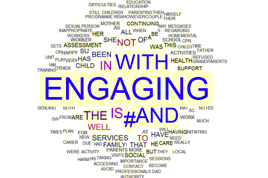The principal investigator for the WISP project is Professor Theresa Lillis, in this short video Theresa will tell you a little more about the project:
WISP has worked very closely with key stakeholders in social work and has been supported through an Impact Advisory Group with representatives from social work agencies, BASW, HCPC, UNISON and the Higher Education Council. The group has been chaired by Dr Lucy Rai, who you can hear from in the following video:
Contributing Resources
We will also be developing a space on the website for resources contributed by other organisations. If you represent a qualifying Social Work Programme of training department and would like to contribute a resource to this site please contact Lucy Rai, Lucy.Rai@open.ac.uk. Users of all resources will be invited to provide feedback.
Using the resources
When you access the resources you will be asked to register (). This is to enable us to log who is using the site. It will also enable you to save your work so that you can return to it to review or edit it.
NOTE: WiSPER will not have access to or retain any data that you put into the site. This will remain private to you. (See privacy policy)
The resources are grouped into topics and you will find several activities in each topic. You do not need to access these in any order or complete all of the activities. However we have organised them into a sequence that should be helpful to you if you chose to follow through all of the activities within a theme. At the end of many activities you will find an ‘Application to Practice’ activity which will encourage you to transfer your learning to your specific role and agency.
If you need to, you are able to save your progress while working on a resource and then find them in your account. Here you can see your notes on your work.
Confidentiality
The examples used on the site are based on a range of data collected as part of the WiSP project, including authentic written texts from practice. These texts are used with the permission of the donating agencies and have been fully anonymised (for details about the WiSP datasets, see http://www.writinginsocialwork.com/publications-and-resources/).








